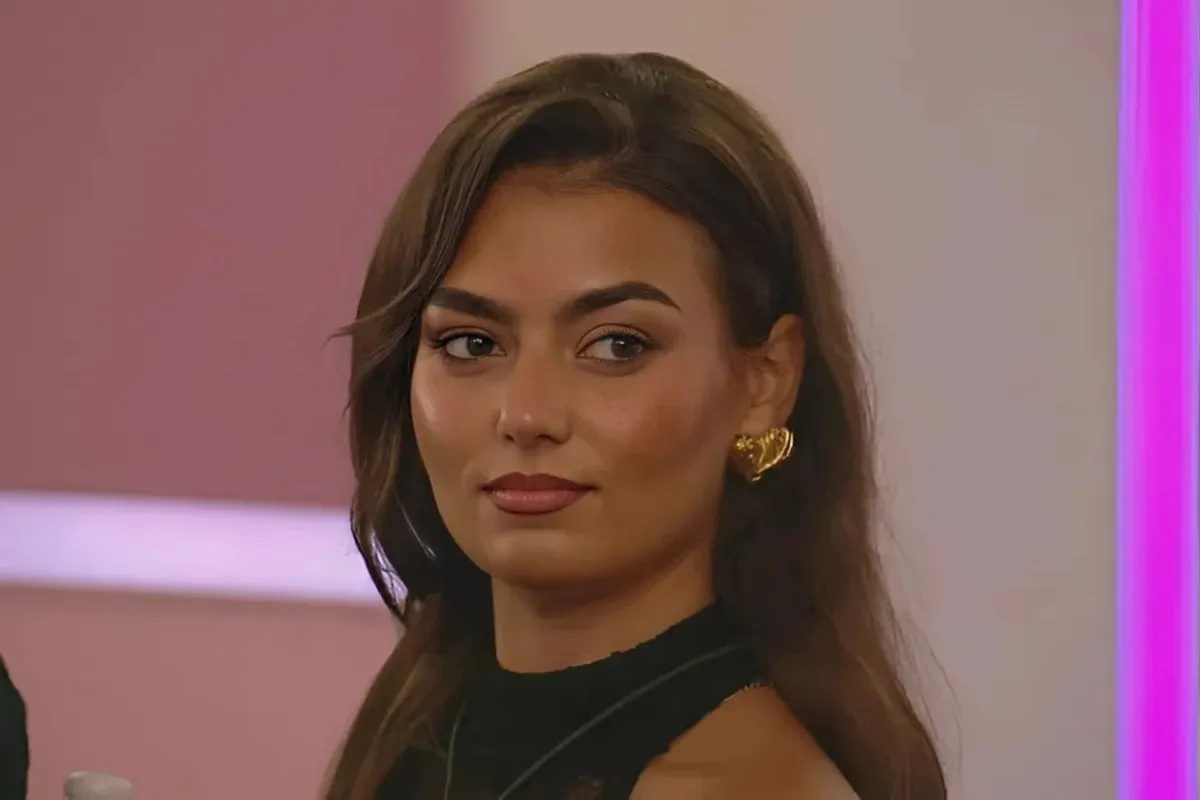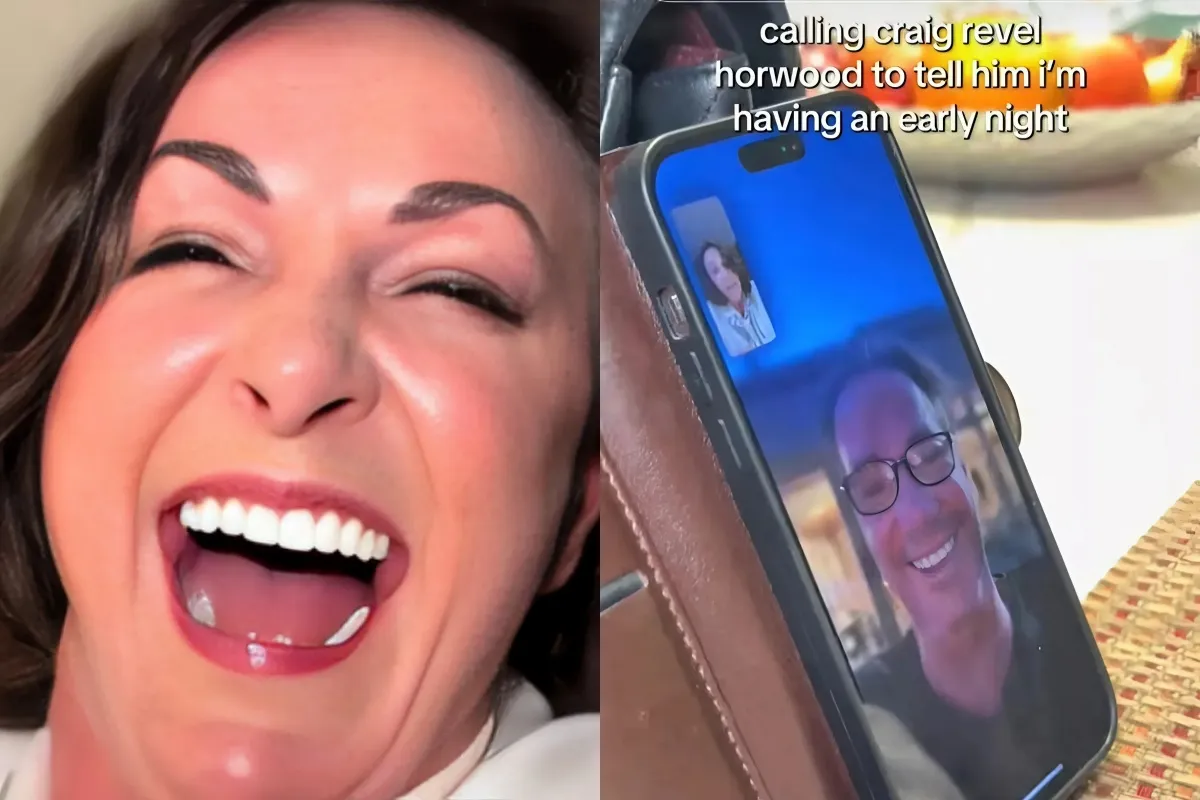TOWIE alum Lydia Bright has been called out for "parent shaming" after sharing medical advice online.
The reality TV star, 34, came under fire following her latest Instagram post, which documented a day in her life as a busy mum.

6

6

6
It showed Lydia playing with her five year old daughter Loretta and cooking together while calling out the increased use of screen time among kids.
The former TOWIE fan favourite admitted she was "far from the perfect parent" yet hailed the "routines" she sticks to with Loretta to keep her away from tablets, including "books before bed."
Lydia partnered with organisation Health Pros for Safer Screens for her video, yet some fans took issue with one claim in which she linked increased screen time to a "27 per cent rise children struggling with speech and language."
She added: "ADHD diagnoses have soared by 56 per cent and one in four 10 year olds are now living with obesity."
Fans weren't impressed with the link to ADHD, which is a common condition that affects people's behaviour.
The disorder, which is often diagnosed in childhood, often sparks symptoms of inattentiveness, hyperactivity and impulsiveness.
The ADHD Foundation reveals that attention deficit hyperactivity disorder is one of the most common childhood conditions.
One angry follower was quick to comment on Lydia's post and wrote: "Screens don't cause ADHD. The ADHD is already there, so tired of this false narrative just so you can post an ad. Inaccurate and offensive."
A second posted: "ADHD is genetic, this will make parents feel awful by saying that screen time caused it!"
A third mused: "I have to comment but as far as I am aware ADHD isn’t related to screen time, it’s genetics."
Lydia Bright reveals daughter, five, is still co-sleeping
One then wrote: "Throwing ADHD in the mix is not good. The only reason ADHD diagnosis is up is because it’s being recognised now unlike a few years ago they said it was bad parenting.
"Please only post the truth it’s important. I agree with you too many parents can you screen time and it’s not good for children."
Another mused: "I’m sorry you haven’t been given the correct information about ADHD having specialised and worked with children and young adults.
"It’s going to offend the hard working parents and guardians alike .
ADHD isn’t related to screens!"
What is neurodiversity?
You may have heard of autism and ADHD before.
These conditions come under the umbrella term of neurodiversity.
Neurodiversity is a term that refers to the natural variation in how human brains work.
It is rooted in the idea that neurological differences, such as those associated with autism, ADHD, dyslexia, dyspraxia, Tourette's syndrome, and other conditions, are a normal and valuable part of human diversity rather than deficits or disorders that need fixing.
Rather, society should find ways to be more inclusive and accommodating, such as in schools and the workplace.
Here's a closer look at two of the key conditions:
ADHD
ADHD, or attention deficit hyperactivity disorder, is a neurodevelopmental condition that affects how individuals focus, regulate their impulses, and manage their energy levels.
Symptoms depend on the type; inattention causes challenges with focusing, organisation and time management, hyperactivity causes excessive energy or restlessness, and impulsivity causes a person to act without thinking or struggle to wait their turn.
People can be predominately one type or a mix of the two and symptoms are varied and unique to individuals.
While living with ADHD is challenging, people often find unique strengths within their condition, such as the ability to hyperfocus on something they find interesting, problem-solving skills and creativity.
Autism
Autism is described as a "spectrum" because it encompasses a wide range of traits and abilities.
Common features include difficulty with social communication, such as reading facial expressions or tone, repetitive behaviours and routine, sensitivity to stimulation of the senses, e.g. bright lights or loud noises, and detailed, literal thinking.
Autism can be challenging, including due to a lack of understanding. But there are key strategies to help those with it thrive.
In her caption, Lydia offered more insight in her new collaboration.
She wrote: "We’re in the middle of a public health crisis that isn’t being talked about. Ad*
"I believe so many parents aren’t aware of the developmental, behavioural, physical, and emotional risks of excessive screen time in early childhood.
"That’s why I’ve teamed up with @healthprosforsaferscreens to help share the facts. This isn’t about guilt tripping, we’re all doing our best with the knowledge and tools we have.
"But I believe that if parents really knew the dangers that would make different choices.
"Which is why I think their free Summer of Connections e-book is a must-read for parents.
"It’s packed with evidence, information and realistic ideas to help families reduce screen time and support new routines, rituals and healthier childhood development.
"Head to my stories or bio to download. *Partnering with #healthprosforsaferscreens to raise awareness of screen harms."
FAN SLAM
Recently, Lydia was mum-shamed for admitting she still co-sleeps with her daughter instead of her partner.
She previously came under fire over a sweet video she posted of her five-year-old little girl.
In the sweet clip, Loretta - whom she shares with her ex-boyfriend Lee Cronin - could be seen fast asleep next to her mum.
However, some cruel trolls said she should not be letting her child sleep next to her, if she wants to find a new man.
She was also mum-shamed after letting her daughter climb on plane seats.

6

6

6



